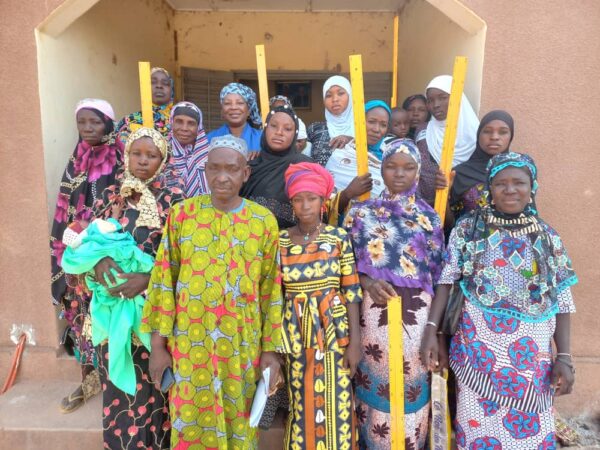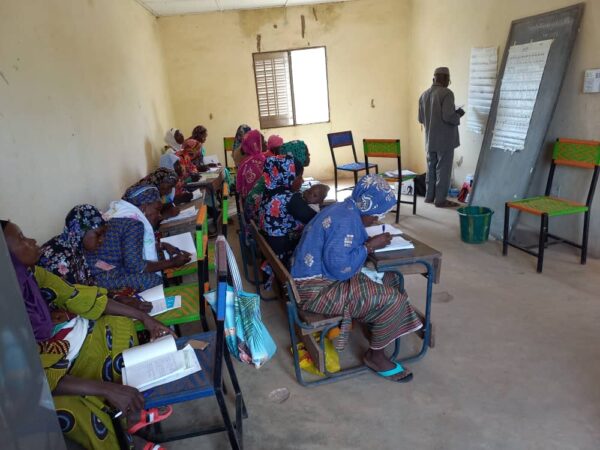In Mali, nearly 500 women members of agricultural co-ops supported by the Dou Touloma project are taking part in a first literacy campaign within the regions of Koulikoro, Ségou and Dioila. This five- to six-month initiative aims to strengthen the literacy and numeracy skills of women farmers, while also diminishing barriers to their access to land and entrepreneurial freedom.
“These women are already pillars of their community. In the long term, literacy can empower them to become autonomous players in managing their agricultural, economic, cooperative and civic activities.” – Mouly Baby, gender equality, advocacy and institutional strengthening specialist for the Dou Touloma project.

Co-ops and their communities, driving success
Each co-op is contributing to training women members, with the support of its union and in accordance with the seven cooperative principles. These organizations provide a space for training in addition to supporting and following up with the literacy staff who deliver the courses.
Likewise, each teaching centre (Ségou, Sanando, Banamba and Beleko) has supported the project by negotiating with key players and by making instructional materials available to the learners, who attend classes five days a week. The initiative is also supported by mayors, village chiefs and local unions.

“This literacy initiative for women farmers responds to a need that they strongly and widely expressed during the sector surveys for developing our project implementation plan,” according to Mouly Baby.
The Dou Touloma project has the financial backing of Global Affairs Canada ($17.4 million) and is being carried out by the Alliance Agricole Internationale, a consortium of three Canadian organizations made up of SOCODEVI, the Centre for International Studies and Cooperation and the Union des producteurs agricoles – Développement international.
Source: Habibatou SACKO, communication advisor for the Dou Touloma project